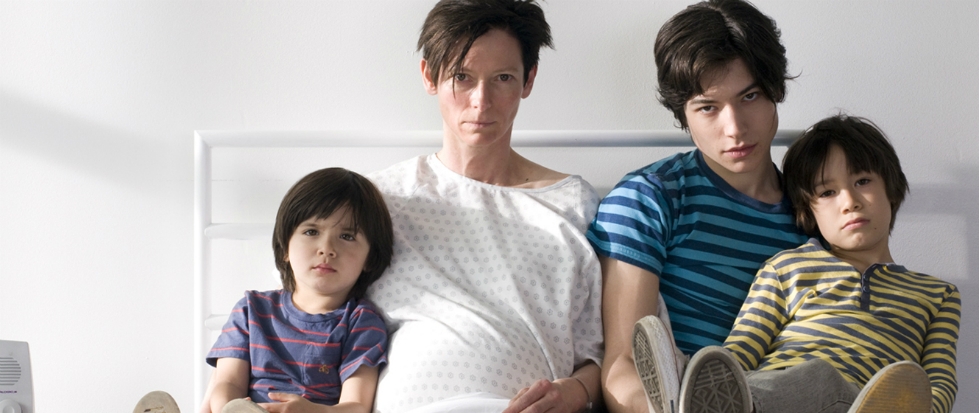
mother! is bullshit
I like to tell people that my English literature degree is a degree in “bullshit,” because it frequently implored me to craft long essays on the meaning of text I was bored by and that it instilled in me a capability to write said essays quickly and efficiently, even if I had not read the source material. A point of pride is a 10 page essay on the scene direction in Samuel Beckett’s play Waiting for Godot, a text I still have not read because Lucky’s nonsense speech in the center enraged me. The teacher gave me an A and told me I had a really deep read.
I bring this up not to highlight my quick thinking in the face of academic failure but rather to say that the degree wasn’t so much about bullshit but rather more frequently about metaphor and allegory and the way that we use language to craft stories that have meaning. And I bring up my bonafides because when discussing deep texts people will claim that you just didn’t get it somehow.
I say this because I understood Darren Aronofsky’s mother! and it was bullshit.
I will not belabor the point of what allegory is. If you’re terribly interested, Google exists for a reason and to my grandmother’s great disappointment I never actually did get that teaching certificate. mother!, as well as being a text that infuriates the power of word processing, is an allegorical tale. The characters are never named, the people concepts rather than constructed creations with souls and being, and the floorboards have bleeding vaginas because it’s deep. If a film has you thinking “is she going to give actual birth to a rock” you’re probably watching something steeped in allegory. Or absurdism. Actually easier way to tell: does it feel like any of these stories could be parallel to the Bible? Congratulations it’s an allegory.
mother! is set inside of a house, a large palatial home where only people in films live, with large farmhouse sinks and subway tiled bathrooms. Jennifer Lawrence is the principal focus of the film, her mouth always slightly open, her gaze always earnest. She is the young wife of Javier Bardem, a writer who cannot write. Slowly we are introduced to more characters, strangers who have barged into their lives and fuck and murder their way through the home until the world is literally turned asunder. It’s a bottle movie if the bottle is a lava lamp and someone has opened the top to start drinking from it because no one cares anymore.
There’s more, a lightning fast pregnancy, a strange bleeding hole in the floorboards and a secret boiler room that spits out a single frog that hops uncaring into the night. There’s Domnhall Gleeson as the only thing the movie has that may closely resemble a straight man. At its core though is a sort of affected madness. Everyone does as they like while Jennifer Lawrence runs confusedly, always center frame, through her earth-toned home. It’s tedious, this drip fed self-importance, this interminable failing of a film. The first hour plus is mostly punctuated by Jennifer Lawrence soft footing her way around her home, a frequently-tinny soundscape that is dominated by sudden rushes of wet muddy fresco, sharp tines of glass along porcelain and punch of a hammer against wood as Javier Bardem nails shut the Garden of Eden. The sound design is like weaponized ASMR, pleasant noises turned up so high that they become anxiety inducing, sudden bass drops where there is supposed to be silence.
The final 30 or so minutes is dominated by a sea change so abrupt in tone that to call it inconsistent would be too mild. I’m going to spoil the movie for you because it doesn’t matter. In short order we witness the rise of a religion, the radicalization of conspicuous extra Kristen Wiig, explosions, theft, a birth, the dismemberment and feasting on of a newborn baby, and a woman self-immolating. In case you were curious how this was subtle, don’t worry it is not. Literal quotes from this section include Jennifer Lawrence asking a man who is destroying her house “Why are you doing this?” and him responding “Proof we were here,” and Kristen Wiig gleefully shouting to Jennifer Lawrence dressed as a goddess “The inspiration! Where have you been hiding!” while holding a gun on the prone figure of a man she has just executed.
Kristen Wiig plays a book publicist named “The Herald” in case you were wondering about her prophetic leanings.

The film is as heavy-handed as a student film that you watch while sitting next to the director who keeps poking you in the shoulder going “get it? It’s about like..poverty and the struggle of the middle class” except this movie stars multiple Oscar winners and cost $30 million to make. It’s thematically masturbatory and because it can’t just be generally terrible, it’s also terrible to women.
The women in this film are either the virgin (Jennifer Lawrence — who stumbles through conversations about sex and dresses in white for most of the film) or the whore (Michelle Pfeiffer — who dresses in lingerie and engages in sex frequently). Jennifer Lawrence’s only sex scene is so graphic as to fall almost into non-consensual, pushed against the wall in the middle of a fight and struggling til she gives in, but when she wakes in the morning she smiles beatifically at her husband and announces that she is pregnant. This movie feels like it was written by a man who had never heard two women talk, Michelle Pfeiffer badgering Jennifer Lawrence about how she has to wear more sexually alluring underwear to attract her husband and demanding that she explain why she has no children.
Jennifer Lawrence cooks a multi-course meal, wearing a goddess dress with her hair perfectly coiffed while nine months pregnant. I’m only shocked that she wasn’t wearing heels. mother! wears allegory like a shield to hide the fact that the movie reads like no woman has ever set foot in Aronofsky’s home, let alone his life and all of that is made worse by the fact that Aronofsky and his principal actress are dating. The yawning gap between Jennifer Lawrence’s doll-like performance and real women is so great that it becomes less “do you think Aronofsky thinks motherhood is like this” and more like “do you think Aronofsky knows that women poop?”
Lawrence plays the softest Mother Earth to the coiled intensity of Javier Bardem, who in case it was not clear through the course of this review, is God. Called “Him” in the credits, he is the ultimate creator, driven to create at the expense of his wife and child, driven to beg her to forgive his followers after they literally tear her child apart and eat his flesh.
This, is of course, bad enough. All of this is bad enough. At each step this movie is bad enough except the movie begins on a reset, a woman on fire, her skin peeling away as she stares, and Javier Bardem setting a clean crystal in its holder, the world righting itself. So as Jennifer Lawrence finally has enough, setting fire to the house as she stands within it, destroying all of the people, she is carried back upstairs by Javier Bardem. Because he is eternal and he is God and she must now sacrifice her love for him so that he can continue to create, with a new mother.

As she lays on the table, burned almost past recognition, she tells him that she is done but he asks for more before literally tearing her heart out of her chest so she can, beautifully of course, cry and then curl up like she has had the soul sucked out of her with a straw. Woman are an object through which men subsume so men can create. Man is the ultimate creator, in a world where the woman has literally created life and also hand built a home, man is the final creator. The final creative.
The reset means that this happens much the same way every time, that he watches her give birth, hold her son in her arms, watches their son die, watches her get brutalized and then kill herself and then starts again. It’s so profoundly sociopathic, so distinctly destructive that it becomes a story about a woman trapped in a hellscape from which she cannot escape from which she will always be trapped. Creative men drain women til they are husks and then they replace them with near copies.
In this, I guess, we have our psychological horror. If only I believed that Aronofsky saw it that way.




